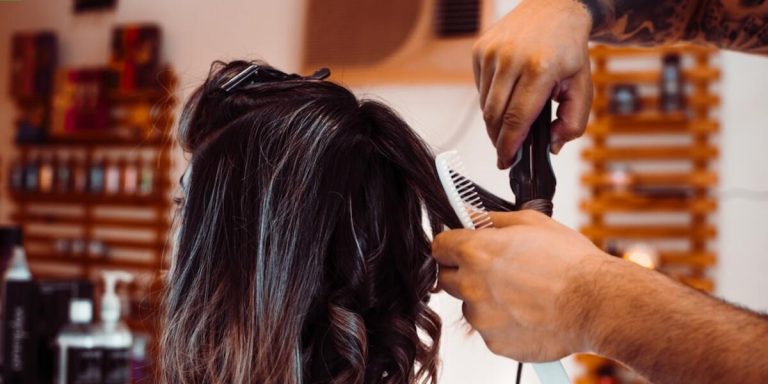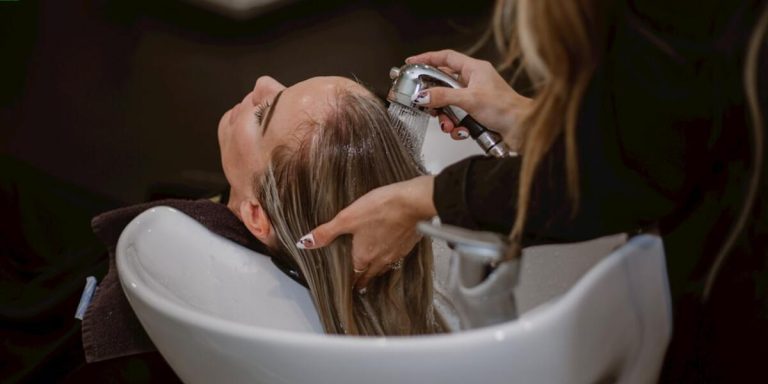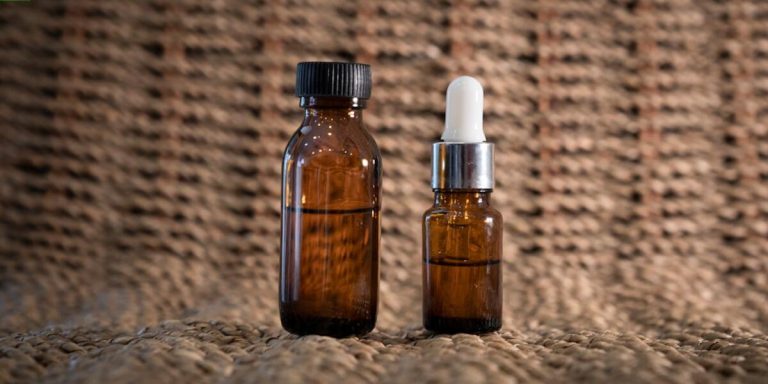Is Vitamin A Good for Hair Growth? Uncovering the Truth
Are you looking into the best methods to improve hair growth? You’ve likely discovered the role of vitamins for healthier hair. Specifically, Vitamin A gets praise for its potential benefits. But are these claims credible? This blog post debates, “Is vitamin A effective for hair growth?”
Distinguish between fact and fiction when it comes to your health. Many online sources detail nutrients’ effects on wellness, including hair vitality. Take a deeper look into scientific evidence before adding them to your routine. This discourse unveils what science says about Vitamin A’s role in fostering healthy hair.
Did you know?
Contrary to popular belief, excessive intake of Vitamin A can actually lead to hair loss. The National Institutes of Health warns that an overload of Vitamin A is toxic and can negatively impact your hair growth cycle.
Understanding the Role of Vitamin A in Hair Health
Vitamin A acts as a powerhouse nutrient for maintaining our body’s overall health, including our hair. With its antioxidant properties, vitamin A promotes healthy skin cell growth, which in turn supports healthier hair follicles. Healthy follicles lead to improved hair growth and diminish the risk of thinning or balding.
- Produces sebum, the scalp’s natural oil that keeps hair moisturized
- Prevents breakage by addressing dryness
- Shields hair roots from environmental pollutants, adding a layer of protection
Tempting as it may be to expect quick mane gains from ramping up Vitamin A intake, overdoing it won’t help. Research indicates that excess amounts can cause shedding or hair loss due to the toxicity that occurs when too much Vitamin A accumulates in our bodies, unlike most vitamins which are excreted regularly.
With sensible supplementation and the addition of dietary sources such as sweet potatoes, carrots, and spinach, achieving long luscious strands with nature’s tools is simple. Considering the 2023 preference for organic living among conscious consumers, striking a balance is crucial for a successful strategy moving forward.
The Science Behind Vitamin A and Hair Follicle Function
Vitamin A, known for enhancing vision and immune health, also plays a crucial role in hair growth. It supports optimal cell production, which directly affects the follicles on your scalp – the tiny organs responsible for producing hair.
Every strand of hair on your head starts its life in a tiny factory known as the “hair follicle.” These factories require key resources to function effectively, one of which is vitamin A. Vitamin A helps maintain these follicles by ensuring they have enough sebum, or natural oil. This nourishment protects the strands against environmental damage like sun exposure and harsh chemicals.
Vitamin A not only maintains healthy sebum levels but also promotes faster cell regeneration in the scalp’s skin layers and hair roots. This boosts the hair growth rate and strengthens each strand, resulting in reduced breakage and increased volume over time.
There are scientific studies revealing associations between chronic Vitamin A deficiency with thinning hair and even alopecia (baldness) among affected individuals worldwide! Clearly demonstrating how vital this nutrient really is towards ensuring optimal human mane vitality!
Balancing Vitamin A Intake for Optimal Scalp Nourishment
The balancing act of Vitamin A intake plays a key role in dictating the health scenario of your scalp and hair. Our body needs this vital nutrient to aid cellular growth, which includes hair, the fastest growing tissue in our system.
Vitamin A plays a significant role in hair growth by maintaining healthy cells and stimulating the production of strong, voluminous strands. It supports keratinization, an essential process that leads to stronger hair.
Excess consumption of this particular vitamin doesn’t guarantee enhanced benefits. Consider water: essential, but deadly in excess. Too much vitamin A or supplement intake can cause hypervitaminosis A, a condition your hair won’t appreciate!
• Include sources such as dairy products like milk, cheese; fruits particularly mangos & apricots; vegetables namely carrots & pumpkins in your dietary habits.
• Supplements are also considerable but should be consulted with healthcare providers beforehand due to potency variations they possess over natural food sources.
Comparing Popular Hair Growth Vitamins to Vitamin A
If you’ve been researching ways to boost your hair growth, chances are, you may have come across various types of vitamins marketed for this very purpose. Everything from biotin supplements and folic acid tablets has been touted as a lifesaver for those struggling with thinning or slow-growing hair.
In the sea of popular solutions, many often overlook vitamin A, a nutrient not typically marketed as a ‘hair growth’ vitamin. However, it plays critical roles that directly impact hair health and growth. In 2023, more individuals understand how essential nutrients like vitamin A can positively affect overall well-being, including root robustness.
Key Benefits and Limitations of Biotin Versus Vitamin A
In the world of hair growth vitamins, Biotin and Vitamin A stand tall as common choices. Understanding their benefits and limitations can be a vital step in making an informed decision about which is best suited for your specific needs.
Biotin, also known as vitamin B7 or vitamin H, has long been associated with healthy hair growth. It aids in converting food into energy within your body and plays a critical role in maintaining the health of our skin, nails, eyesight…and indeed – our tresses too!
1. Stimulates Keratin Production: Biotin stands out due to its ability to stimulate keratin production – the protein that makes up most part of our strands.
2. Reduces Hair Breakage: Regular ingestion may lead to stronger follicles resulting in less split ends and breakages.
3.Aids Cell Growth: Incredibly beneficial because it assists other nutrients affect cell development positively attributing better quality locks over time.
1.Interferes With Lab Tests : High doses can skew certain lab tests results including thyroid ones causing misdiagnosis at times!
How Iron, Zinc, and Omega-3 Fatty Acids Stack Up Against Vitamin A
Vitamin A is often hailed as an essential micronutrient for hair growth. But how does it fare when pitted against other popular hair growth vitamins such as iron, zinc and omega-3 fatty acids? Let’s delve into the comparison.
Iron transports oxygen to your cells, including those that promote healthy hair growth. Deficiencies can cause weakened strands and slow regrowth rates. Conversely, adequate vitamin A intake supports sebum secretion, which moisturizes the scalp and prevents breakage.
Zinc, next on our comparative scale, supports protein synthesis processes essential for strengthening follicles and promoting new hair strand growth. Although critical, its role may seem less significant compared to Vitamin A’s abilities. In contrast to just aiding in protein synthesis, Vitamin A supports natural oil production to preserve scalp health and accelerates cellular replication, vital for sustained hair growth phases.
Implementing a Diet Rich in Vitamins for Enhanced Hair Growth
Implement a vitamin-rich diet to naturally boost hair growth by including specific nutrients proven to enhance hair health and vitality.
Include Vitamin A in your diet because it supports cellular regeneration, crucial for robust hair growth.
Vitamin A has garnered considerable attention for promoting healthier hair. It promotes sebum production, the body’s natural oil that moisturizes and nourishes the scalp, creating ideal conditions for healthy hair growth. Adequate vitamin A prevents a dry or flaky scalp and is essential not only for skin health but also as an integral part of any holistic plan aimed at enhancing follicular strength and preventing undue breakage.
Acknowledge the benefits of vitamin A in boosting overall hair health. Remember that balance is key to prevent reversing these effects and causing side effects such as excessive shedding. Consume the right amount of vitamin A by incorporating whole foods into your meals, including:
- Sweet potatoes
- Carrots
- Spinach
- Fortified cereals
This careful intake will promote a richer, longer, and more luxuriant mane!
Identifying Natural Food Sources High in Vitamin A
Vitamin A plays a pivotal role in maintaining not just our overall health but also the well-being of our hair. It aids in sebum production, which keeps your scalp moisturized and helps maintain healthy hair growth. Let’s delve into discovering natural food sources that are rich in Vitamin A.
Firstly, it’s important to note that there are two types – Preformed Vitamin A and Pro-Vitamin A. The former is mainly found in animal-based products such as dairy items and fish while the latter typically resides within plant-based foods like fruits and veggies.
Sweet potatoes top the list when we talk about vitamin A-rich vegetables. One medium-sized sweet potato contains more than enough daily dose of vitamin-A required for an adult human being – making it an excellent choice for those working on their hair-growth goals.
Next comes carrots; who doesn’t know they pack considerable amounts of pro-vitamin-A? They can either be eaten raw or be cooked depending upon individual preferences without any significant loss in their nutritional value.
Thirdly, spinach may seem surprising on this list, but one cup provides approximately 50% of your daily needs! Aside from this necessary nutrient, spinach is known to provide other elements advantageous for optimal hair-health including Iron & Folate!
Creating Balanced Meal Plans That Support Healthy Hair Growth
Implementing a diet, concentrated in hair growth vitamins can promote healthier and stronger locks. As we delve into this subject matter of creating balanced meal plans that support healthy hair growth, it’s essential to understand how vitamin A specifically affects the process.
Vitamin A offers several benefits beyond improving eyesight, including promoting healthy hair growth. It plays a role in maintaining cellular health and supports the production of the scalp’s natural oils, which serve as a conditioner to nourish and moisturize strands, preventing dryness and breakage.
1. Incorporate Yellow And Orange Fruits: Think carrots or mangoes full of beta-carotene—an element our body naturally converts into Vitamin A.
2. Green Leafy Vegetables: Choices such as spinach or kale have abundant levels making them ideal components.
3.Implement Dairy Products-Like yogurts packed with probiotics also offer ample amounts aiding digestion hence better absorption.
It might feel daunting at first glance but trust us when we say variety holds key success here versatile nature allows seamless incorporation every meal plan without monotony setting rendering journey towards luscious tresses enjoyable rewarding one!
Conclusion
In conclusion, vitamin A indeed supports hair growth. It promotes healthy and vibrant hair by:
- Supporting sebum production
- Sustaining scalp health
- Promoting cell growth
However, balance is crucial when it comes to intake; deficiencies may arise from too little, while excess can cause harm.
Browse our website for a variety of articles that explore Hair Growth Vitamins and related topics. We encourage you to further satisfy your curiosity by exploring these insightful resources. Remember: To achieve magnificent locks, it’s important to know exactly what your body needs. Let’s start exploring together!







